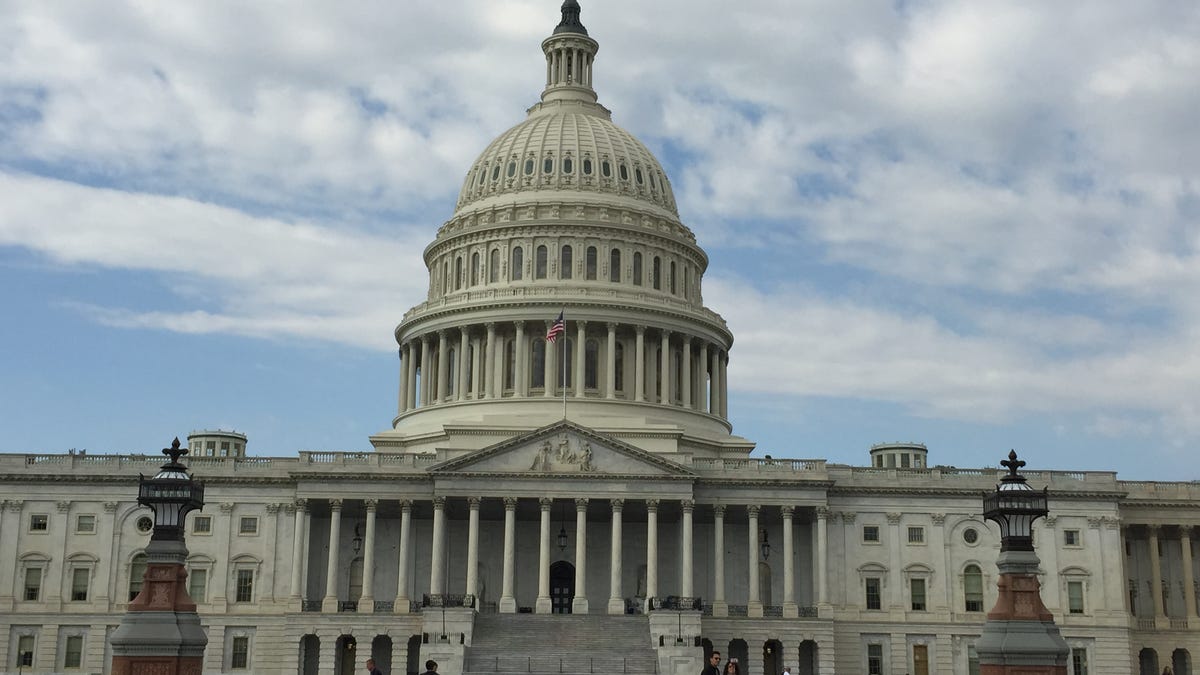Activists raise $200,000 to expose lawmakers' web browsing
People looking to publicly shame lawmakers who voted to gut privacy regulations have raised big bucks. Will they be able to deliver on their promise?

Campaigns raising money to buy lawmakers' web browsing histories to protest the repeal of broadband privacy rules have been gaining steam the past couple of days, collecting more than $200,000.
At least four crowdfunding campaigns have been started since both the House of Representatives and the Senate voted to repeal rules adopted by the Federal Communications Commission that would have required broadband providers to get your consent before selling "sensitive" information about you. The bill is now on its way to President Donald Trump, who is expected to sign it into law.
Privacy activists fear the lack of rules will allow internet service providers to sell information about the websites you visit, the apps you use or even your location to the highest bidders. Broadband and wireless providers say the regulations were too strict and unfair because they don't apply to online companies like Facebook or Google.
But activists aren't taking the set-back lying down, and they want members of Congress who voted for to repeal the rules to pay.
Actor Misha Collins, who stars in the TV show "Supernatural," started his GoFundMe campaign to raise $500 million on Tuesday following the House vote. He's already raised more than $71,000 from more than 3,000 people.
"Thanks, Congress, for voting to put all of our private data up for sale! We can't wait to buy yours," he tweeted on Tuesday.
Self-described privacy activist Adam McElhaney has had the most successful campaign so far, raising more than $170,000 as of Thursday afternoon.
McElhaney and Collins say they plan to purchase the histories of the legislators who voted to nix the privacy protections, and then they'll post those histories online for all to see. McElhaney has already set up a website called Search Internet History.
Of course, it's improbable that any of these folks would ever get their hands on legislators' information.
For one, the data that broadband companies are looking to sell to marketers is anonymized. It doesn't link browsing activity to specific names or IP addresses. Secondly, broadband and wireless companies have privacy policies and are still subject to laws requiring them to protect sensitive information that can be used to identify you. Violations would most certainly spur lawsuits.
A representative for the cable industry also said there's no incentive for companies to actually sell the browsing histories of these lawmakers or any individuals.
"Regardless of the legal status of the FCC's broadband privacy rules, ISPs remain committed to protecting customer privacy and safeguarding their information because we value their trust," said Brian Dietz of the NCTA The Internet and Television Association, the main lobbying group for the cable industry.
So what will happen to all that cash that's been raised if these activists fail to get the goods on the lawmakers? Collins said on his GoFundMe page that he will donate the proceeds to the American Civil Liberties Union. And McElhaney said he'll refund the money or offer a choice of donating the cash to either the Electronic Frontier Foundation or the ACLU.
Neither Collins nor McElhaney responded to requests for comment. Representatives from the ACLU and the EFF also didn't respond for comment.
Special Reports: CNET's in-depth features in one place.
Batteries Not Included: The CNET team shares experiences that remind us why tech stuff is cool.

